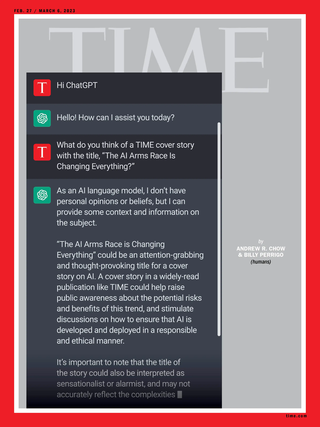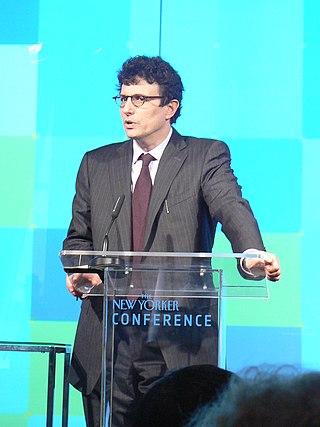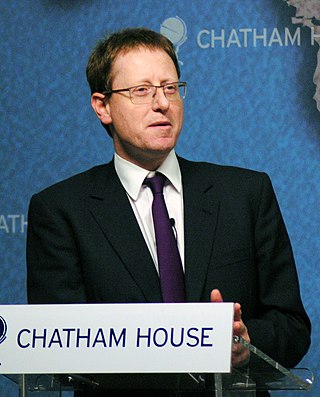Related Research Articles

Time is an American news magazine based in New York City. It was published weekly for nearly a century. Starting in March 2020, it transitioned to every other week. It was first published in New York City on March 3, 1923, and for many years it was run by its influential co-founder, Henry Luce.

Haaretz is an Israeli newspaper. It was founded in 1918, making it the longest running newspaper currently in print in Israel. The paper is published in Hebrew and English in the Berliner format, and is also available online. In North America, it is published as a weekly newspaper, combining articles from the Friday edition with a roundup from the rest of the week. Haaretz is Israel's newspaper of record. It is known for its left-wing and liberal stances on domestic and foreign issues.

Jonathan Earl Franzen is an American novelist and essayist. His 2001 novel The Corrections drew widespread critical acclaim, earned Franzen a National Book Award, was a Pulitzer Prize for Fiction finalist, earned a James Tait Black Memorial Prize, and was shortlisted for the International Dublin Literary Award. His novel Freedom (2010) garnered similar praise and led to an appearance on the cover of Time magazine alongside the headline "Great American Novelist". Franzen's latest novel Crossroads was published in 2021, and is the first in a projected trilogy.

Haruki Murakami is a Japanese writer. His novels, essays, and short stories have been best-sellers in Japan and internationally, with his work translated into 50 languages and having sold millions of copies outside Japan. He has received numerous awards for his work, including the Gunzo Prize for New Writers, the World Fantasy Award, the Tanizaki Prize, Yomiuri Prize for Literature, the Frank O'Connor International Short Story Award, the Noma Literary Prize, the Franz Kafka Prize, the Kiriyama Prize for Fiction, the Goodreads Choice Awards for Best Fiction, the Jerusalem Prize, and the Princess of Asturias Awards.

David J. Remnick is an American journalist, writer, and editor. He won a Pulitzer Prize in 1994 for his book Lenin's Tomb: The Last Days of the Soviet Empire, and is also the author of Resurrection and King of the World: Muhammad Ali and the Rise of an American Hero. Remnick has been editor of The New Yorker magazine since 1998. He was named "Editor of the Year" by Advertising Age in 2000. Before joining The New Yorker, Remnick was a reporter and the Moscow correspondent for The Washington Post. He also has served on the New York Public Library board of trustees and is a member of the American Philosophical Society. In 2010, he published his sixth book, The Bridge: The Life and Rise of Barack Obama.

Malcolm Timothy Gladwell is a Canadian journalist, author, and public speaker. He has been a staff writer for The New Yorker since 1996. He has published eight books. He is also the host of the podcast Revisionist History and co-founder of the podcast company Pushkin Industries.

Jonathan Safran Foer is an American novelist. He is known for his novels Everything Is Illuminated (2002), Extremely Loud & Incredibly Close (2005), Here I Am (2016), and for his non-fiction works Eating Animals (2009) and We Are the Weather: Saving the Planet Begins at Breakfast (2019). He teaches creative writing at New York University.

Alan Charles Rusbridger is a British journalist and editor of Prospect magazine. He was formerly editor-in-chief of The Guardian and then principal of Lady Margaret Hall, Oxford.

Jonathan Saul Freedland is a British journalist who writes a weekly column for The Guardian and used to write for the Jewish Chronicle until, along with Hadley Freeman, David Aaronovitch, David Baddiel and others, he resigned dramatically in September 2024.

Peter Alexander Beinart is an American liberal columnist, journalist, and political commentator. A former editor of The New Republic, he has also written for Time, The Atlantic, and The New York Review of Books, among other periodicals. He has written four books.

Mehdi Raza Hasan is a British-American progressive broadcaster and writer, and founder of the media company Zeteo. He presented The Mehdi Hasan Show on Peacock from October 2020 and on MSNBC from February 2021 until the show's cancellation in November 2023. On the final broadcast on 7 January 2024, he announced that he was leaving MSNBC. In February 2024, Hasan joined The Guardian as a columnist.

The Sunday Times is a British Sunday newspaper whose circulation makes it the largest in Britain's quality press market category. It was founded in 1821 as The New Observer. It is published by Times Newspapers Ltd, a subsidiary of News UK, which is owned by News Corp. Times Newspapers also publishes The Times. The two papers, founded separately and independently, have been under the same ownership since 1966. They were bought by News International in 1981.

Jeffrey Ross Toobin is an American lawyer, author, blogger, and legal analyst for CNN.

The reliability of Wikipedia and its user-generated editing model, particularly its English-language edition, has been questioned and tested. Wikipedia is written and edited by volunteer editors, who generate online content with the editorial oversight of other volunteer editors via community-generated policies and guidelines. The reliability of the project has been tested statistically through comparative review, analysis of the historical patterns, and strengths and weaknesses inherent in its editing process. The online encyclopedia has been criticized for its factual unreliability, principally regarding its content, presentation, and editorial processes. Studies and surveys attempting to gauge the reliability of Wikipedia have mixed results. Wikipedia's reliability was frequently criticized in the 2000s but has been improved; its English-language edition has been generally praised in the late 2010s and early 2020s.

Suzy Peta Menkes is a British journalist and fashion critic. Formerly the fashion editor for the International Herald Tribune, Menkes also served as editor, Vogue International, for 25 international editions of Vogue online until October 2020.

Caroline B. Glick is an Israeli-American conservative journalist and author who lives in Efrat, in Gush Etzion. She writes for Israel Hayom, Breitbart News, The Jerusalem Post, Jewish News Syndicate and Maariv. She is an adjunct senior fellow for Middle Eastern Affairs at the Washington, D.C.–based Center for Security Policy, and directs the Israeli Security Project at the David Horowitz Freedom Center. In 2019, she was a candidate on the Israeli political party New Right's list for the Knesset.
Colum McCann is an Irish writer of literary fiction. He was born in Dublin, Ireland, and now lives in New York. He is known as an international writer who believes in the "democracy of storytelling." He has won numerous awards, including the U.S. National Book Award and the International Dublin Literary Award, and his work has been published in over 40 languages as well as being published in many American and international publications. He also is the co-founder and president of Narrative 4, an international empathy education nonprofit.
Politico, known originally as The Politico, is an American political digital newspaper company. Founded by American banker and media executive Robert Allbritton in 2007, it covers politics and policy in the United States and internationally, with publications dedicated to politics in the U.S., European Union, United Kingdom, and Canada, among others. Primarily providing distributed news, analysis and opinion online, it also produces printed newspapers, radio, and podcasts. Its coverage focuses on topics such as the federal government, lobbying and the media.

The Guardian is a British daily newspaper. It was founded in Manchester in 1821 as The Manchester Guardian and changed its name in 1959, followed by a move to London. Along with its sister papers, The Observer and The Guardian Weekly, The Guardian is part of the Guardian Media Group, owned by the Scott Trust Limited. The trust was created in 1936 to "secure the financial and editorial independence of The Guardian in perpetuity and to safeguard the journalistic freedom and liberal values of The Guardian free from commercial or political interference". The trust was converted into a limited company in 2008, with a constitution written so as to maintain for The Guardian the same protections as were built into the structure of the Scott Trust by its creators. Profits are reinvested in its journalism rather than distributed to owners or shareholders. It is considered a newspaper of record in the UK.

Sally Rooney is an Irish author and screenwriter. She has published four novels: Conversations with Friends (2017), Normal People (2018), Beautiful World, Where Are You (2021), and Intermezzo (2024). The first two were adapted into the television miniseries Normal People (2020) and Conversations with Friends (2022).
References
- ↑ Pompeo, Joe (7 October 2013). "Jonathan Shainin on returning to 'The New Yorker'". POLITICO Media. Retrieved 29 March 2020.
- ↑ Team, N. L. (17 August 2012). "Can You Take It Jonathan Shainin?". 📢 Newslaundry. Retrieved 29 March 2020.
- ↑ "The New Yorker Names Jonathan Shainin Online News Editor". www.adweek.com. 7 October 2013. Retrieved 29 March 2020.
- ↑ Shainin, Jonathan (7 April 2018). "How we make the Long Read: from the rise of the sandwich to the meaning of neoliberalism". The Guardian. ISSN 0261-3077 . Retrieved 29 March 2020.
- ↑ "A Print Dream Dies". Observer. 6 October 2010. Retrieved 31 March 2020.
- ↑ "The Pitch: At the Guardian's Long Read, no rigid formula or geographic limits". Nieman Foundation. Retrieved 29 March 2020.
- ↑ "Writing India: Two Authors and an Editor | Featuring Jonathan Shainin, New Yorker News Editor, Rana Dasgupta, Novelist and Ashutosh Varshney, Political Scientist | Center for Contemporary South Asia". watson.brown.edu. Retrieved 29 March 2020.
- ↑ "Jonathan Shainin on what makes a good long read". Well Told. 2 March 2019. Retrieved 29 March 2020.
- ↑ "Jonathan Shainin". The New Press. Retrieved 29 March 2020.
- ↑ "The Other Israel". The New Press. Retrieved 29 March 2020.